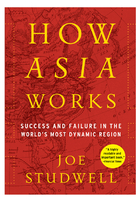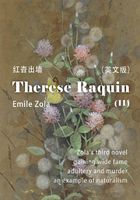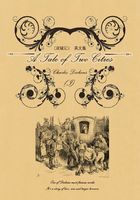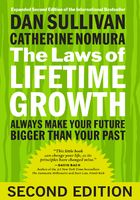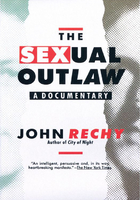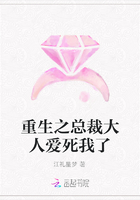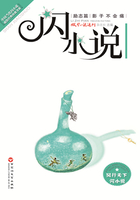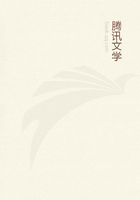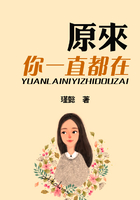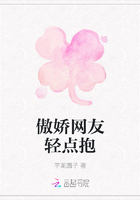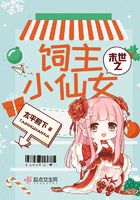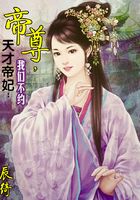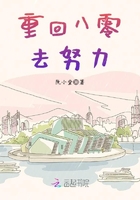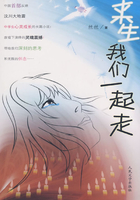Other Books by Arthur Waley
The Book of Songs (Arthur Waley, tr.)
The Nō Plays of Japan
The Way and Its Power
UNESCO COLLECTION OF REPRESENTATIVE WORKS-CHINESE SERIES
This book has been accepted in the Chinese Translations Series of the
United Nations Educational, Scientific and Cultural Organization (UNESCO).
TO BERYL AND HAROLD
INTRODUCTION TO THE AMERICAN EDITION
"I was very fond of strange stories when I was a child. In my village-school days, I used to buy stealthily the popular novels and historical recitals. Fearing that my father and my teacher might punish me for this and rob me of these treasures, I carefully hid them in secret places where I could enjoy them unmolested.
"As I grew older, my love for strange stories became even stronger, and I learned of things stranger than what I had read in my childhood. When I was in my thirties, my memory was full of these stories accumulated through years of eager seeking.
"I have always admired such writers of the T'ang Dynasty as Tuan Ch'eng-shih and Niu Sheng-ju, who wrote short stories so excellent in portrayal of men and description of things. I often had the ambition to write a book (of stories) which might be compared with theirs. But I was too lazy to write, and as my laziness persisted, I gradually forgot most of the stories which I had learned.
"Now only these few stories, less than a score, have survived and have so successfully battled against my laziness that they are at last written down. Hence this Book of Monsters. I have sometimes laughingly said to myself that it is not I who have found these ghosts and monsters, but they, the monstrosities themselves, which have found me!
"Although my book is called a book of monsters, it is not confined to them: it also records the strange things of the human world and sometimes conveys a little bit of moral lesson…."
Thus wrote Wu Ch'êng-ên in his preface to a book of short stories written in the classical language. This collection has been lost; but this preface, fortunately preserved in his Collected Writings, tells us much about the future author of Monkey or Hsi Yu Ki. It tells of his boyhood delight in the strange stories and historical recitals written in the living tongue of the people. It reveals his life-long ambition to write a great book of stories about ghosts and monsters which was to rival the stories by the famous writers of T'ang, and which, though primarily about monsters, did not exclude the strange things of our human world and might also convey "a little bit of moral lesson."
All this he might have written of the Monkey, had he cared to write a preface to it under his own name. He had apparently grown dissatisfied with his monster stories composed in the classical style in imitation of the T'ang writers. At long last, he decided to carry out his great literary ambition by writing a greater book of monsters in the language of the "vulgar" literature of his time. But it was such a great disgrace for a man of literary reputation to produce a novel in the vulgar tongue that the story was published anonymously. And nothing in the two volumes of his Collected Writings (discovered in the Imperial Palaces and reprinted by the Palace Museum Library, 1930) gives the slightest hint of his connection with the book. Just as he in his early boyhood could only enjoy the novels and stories in secret hiding places, so he in his old age had to conceal the authorship of his great masterpiece in anonymity.
For his age was an era of literary reaction. The leading men of letters of the sixteenth century were vehemently advocating a return to the poetry and prose of the greatest classical periods. Their war-cry was: "No prose after the Han Dynasty; no poetry after the First Period (ending 770 A.D., the year of the death of Tu Fu) of the T'ang Dynasty!"
This movement of classical revival was led by the so-called "Early Seven Geniuses" (about 1495-1530) and "Later Seven Geniuses" (about 1550-1590). Our author Wu Ch'êng-ên (c. 1500-1580) was not only contemporaneous with these movements, but was an intimate friend of Hsu Chung-hsing (1517-1578), one of the "Later Seven."
But even as these great leaders preached and produced their imitative classical literature, a new literature of great vitality and power was growing up from among the people and was forcing itself upon the attention and affection of all the classes. This new literature comprised the folk songs, folk tales, historical recitals and popular tales of ghosts, judges (detectives of crime), and heroes. Many skilfully told short stories had been in existence ever since the Sung time. A number of the longer novels had come to be written down, revised and rewritten in the course of transmission, and finally printed and sold as best-sellers among the people. Of these serial stories, the San Kuo (Three Kingdoms) and the Shui Hu Chuan (which Pearl Buck translated as All Men Are Brothers) had more or less attained their present form before the end of the fifteenth century. These novels and stories were read by everybody who could read, although nobody probably would admit having read them. And school boys were severely punished for having read and enjoyed them.
The literary evolution of Wu Chêng-ên is typical of many an author of Chinese novels. He loved the vulgar novels in his boyhood; he went through his classical education and training and became ashamed of his boyish delights; he wrote his imitative poetry and prose in the classical style; he tried to write his stories in imitation of the story-writers of T'ang and Sung; finally, in his mellow old age, he took the bold step of producing his masterpiece in the language of the street and the market-place and published it anonymously.
Wu died without any children. The anonymity of the authorship of Monkey was so complete that for over three centuries the general reading public actually believed that the story was written by the Taoist Patriarch Chiu Ch'u-ki (1148-1227) who in 1219 was invited by Genghis Khan to visit him in Central Asia and who left a record of his travels under the title Hsi Yu Ki (Record of a Journey to the West), which is still regarded as a valuable contribution to the geographical knowledge of the time. It was the similarity in title and the seemingly allegorical character of the novel which were largely responsible for the erroneous attribution of authorship.
But to the people of Huai-an, the birthplace of Wu Ch'êng-ên, the authorship of the story was apparently well-known in the sixteenth and seventeenth centuries. The local history (gazetteer) of Huan-an, compiled in 1625, definitely recorded that the novel Hsi Yu Ki was written by him. This is the first Chinese novel of which the authorship is now authentically established.
The story is originally in one hundred chapters which may be divided into three main parts:
I. The Story of the Monkey (chapters, 1-7)
II. The Story of Hsuan Tsang and the Origin of the Mission to India (chapters 8-12)
III. The Pilgrimage to India (chapters 13-100)
Mr. Waley's version in thirty chapters has translated Part I and Part II almost entirely, his chapter divisions corresponding exactly to the first twelve chapters in the original. From Part III, Mr. Waley has translated only Chapters 13-15 (XIII-XV), 18-19 (XVI-XVII), 22 (XVIII), 37-39 (XIX-XXI), 44-46 (XXII-XXIV), 47-49 (XXV-XXVII), and 98-100 (XXVIII-XXX).
It will be noted that Mr. Waley has here translated only thirty of the one hundred chapters in the original and has left out in particular the second half (chapters 50-97) of the book. Of the thirty-four episodes after the conversion of the three disciples, Waley has selected four: (1) the Story of the Kingdom of Crow-Cock (XIX-XXI), (2) the Story of the Three Taoist Demons in the Cart-Slow Kingdom (XXII-XXIV), (3) the River That Leads to Heaven (XXV-XXVII), and (4) the Final Calamity Caused by the White Turtle (XXIX).
Recollection of my own boyhood favorites in the book makes me feel a little regret that my friend Waley has not included in this translation such exceedingly exciting episodes as the Three Demons of the Lion Camel Mountain (74-77) or the Battles With the Red Boy (40-42), or such charmingly entertaining episodes as the Dharma-Destroying Kingdom (84-85), the Monkey Playing the Medico at the Vermilion-Purple Kingdom (68-69), or the Story of the Mandrake Fruit (24-26). I cannot help expressing the wish that at a more propitious time Mr. Waley may be moved to include a few of these episodes in his most admirable and most delightful translation.
But in spite of these few mildly regretted omissions, Mr. Waley has on the whole exercised excellent critical judgment in his selection of the episodes. I agree with most of his omissions, and heartily approve his method of "omitting many episodes, but translating those that are retained almost in full." His rendering of dialogue is truly masterful both in preserving its droll humor and retaining its rich proverbial form. Only a careful comparison with the original text can fully appreciate the translator's painstaking effort in these directions.
Freed from all kinds of allegorical interpretations by Buddhist, Taoist, and Confucianist commentators, Monkey is simply a book of good humor, profound nonsense, good-natured satire and delightful entertainment. It has delighted millions of Chinese children and adults for over three hundred years, and, thanks to Mr. Waley, it will now delight thousands upon thousands of children and adults in the English-speaking world for many years to come.
HU SHIH
December 15, 1942

